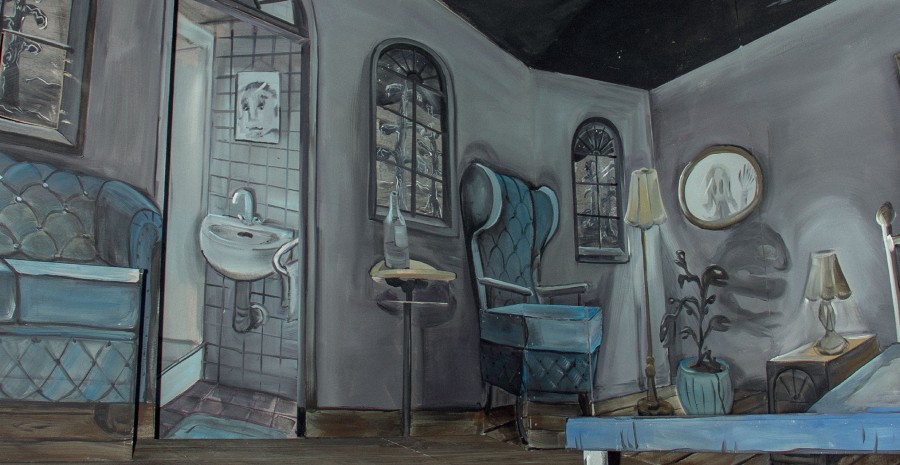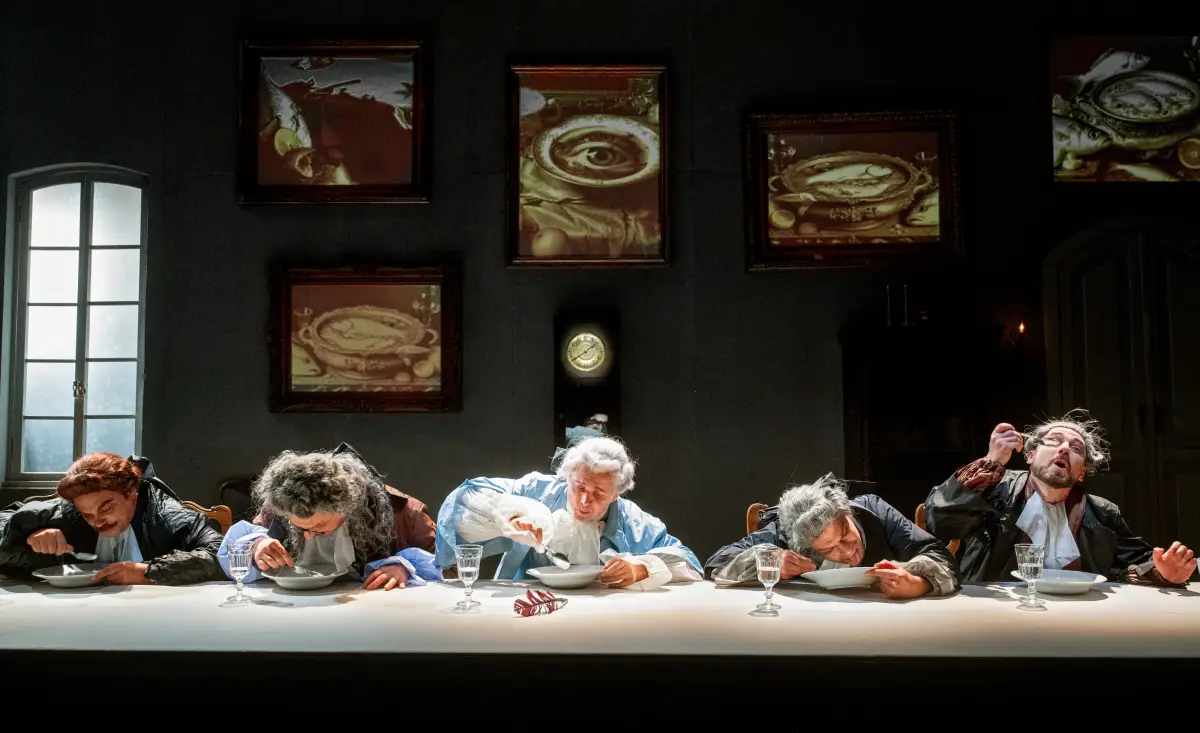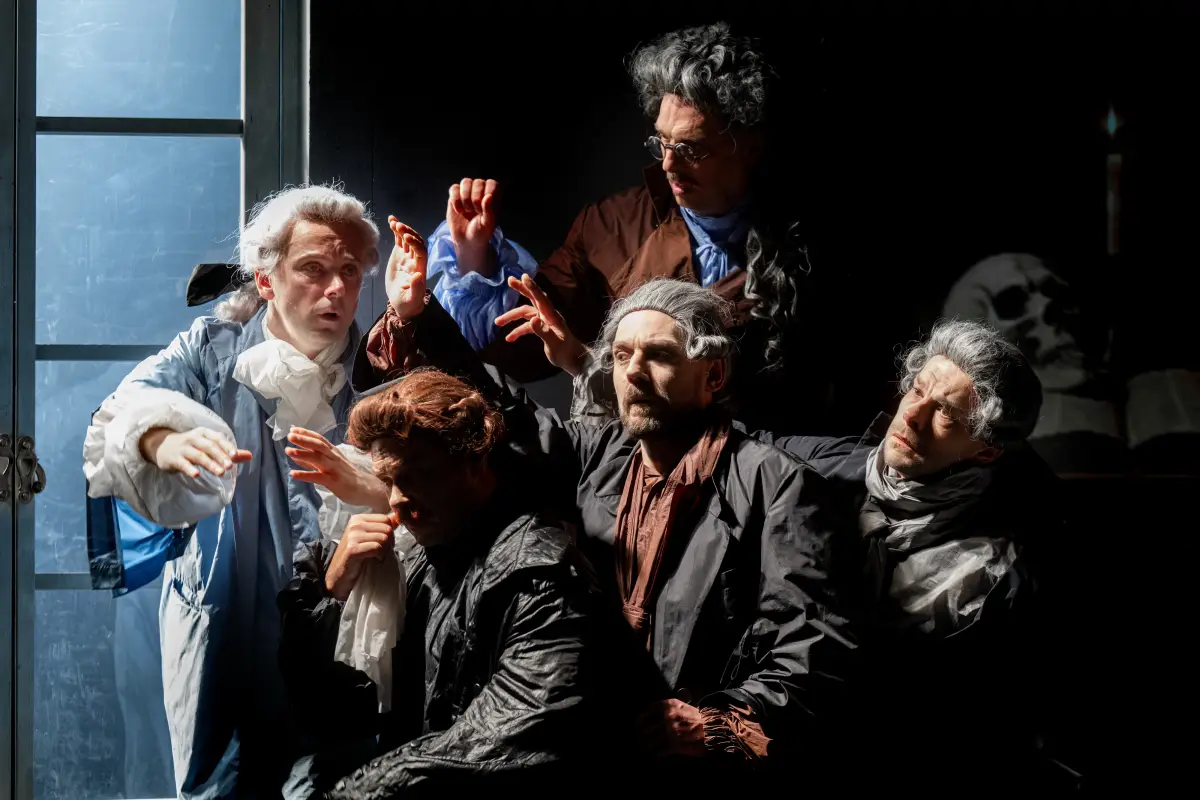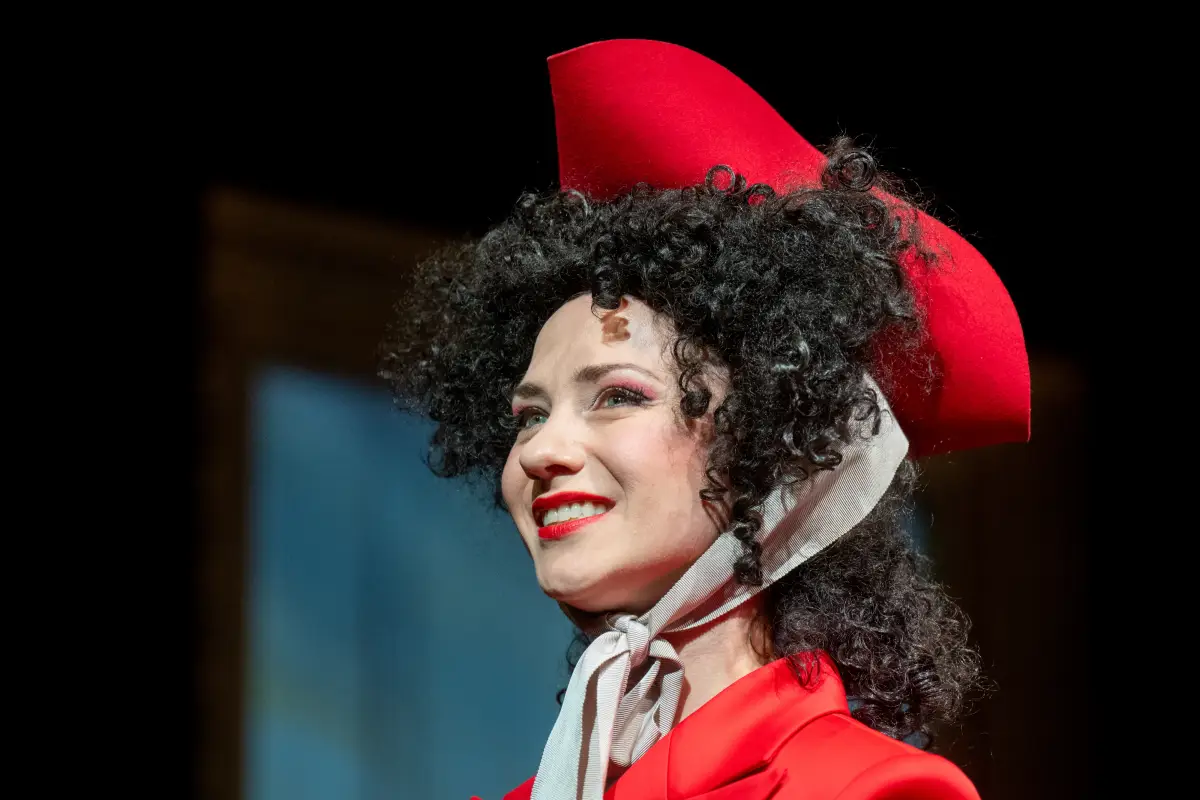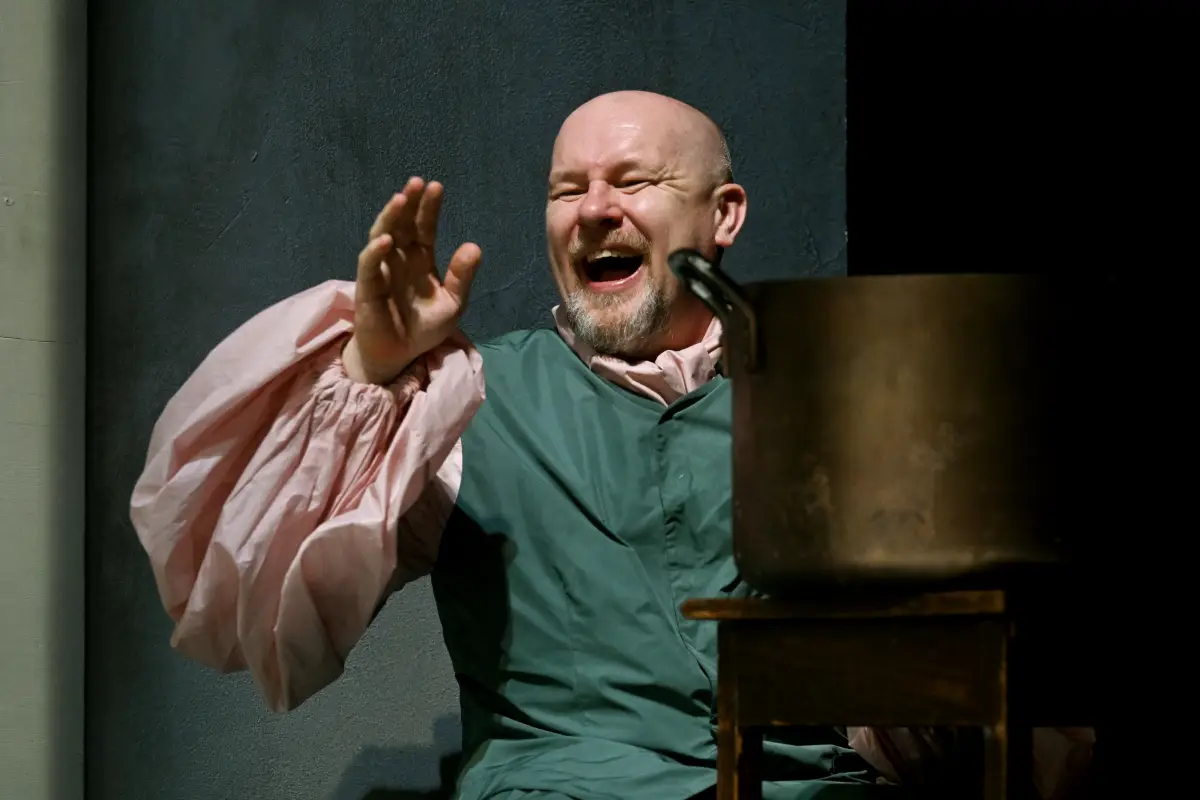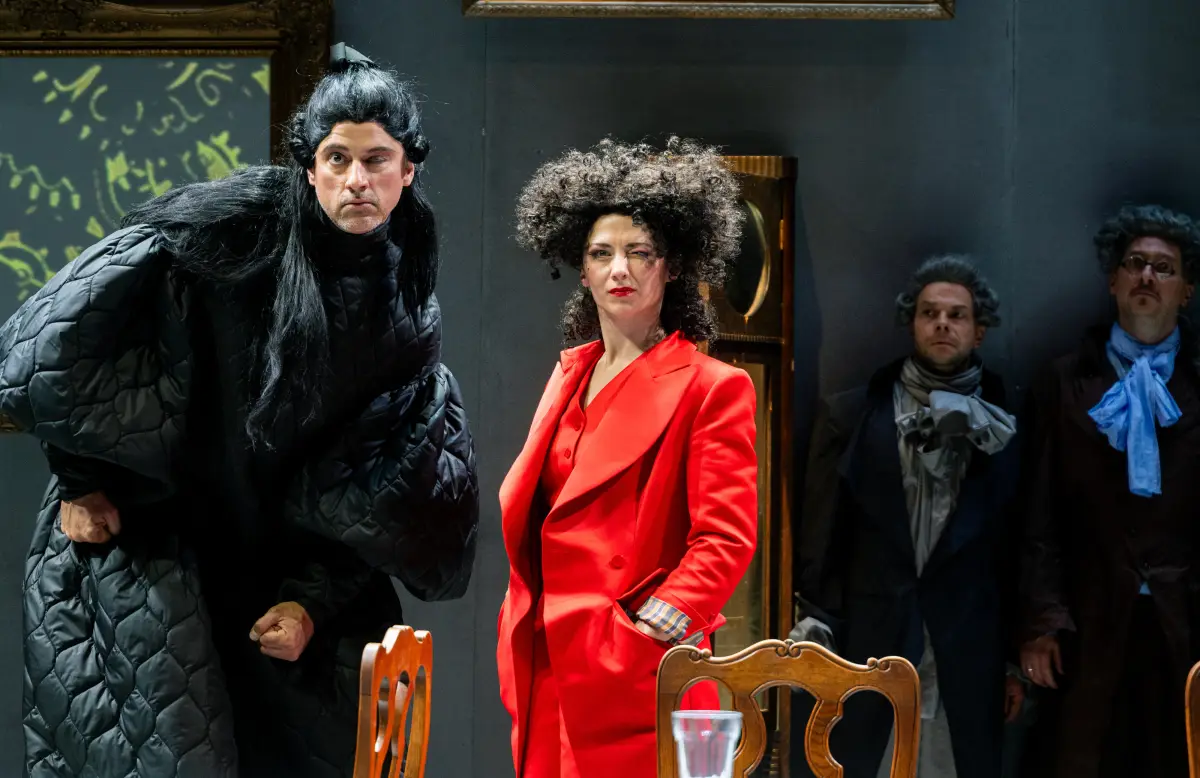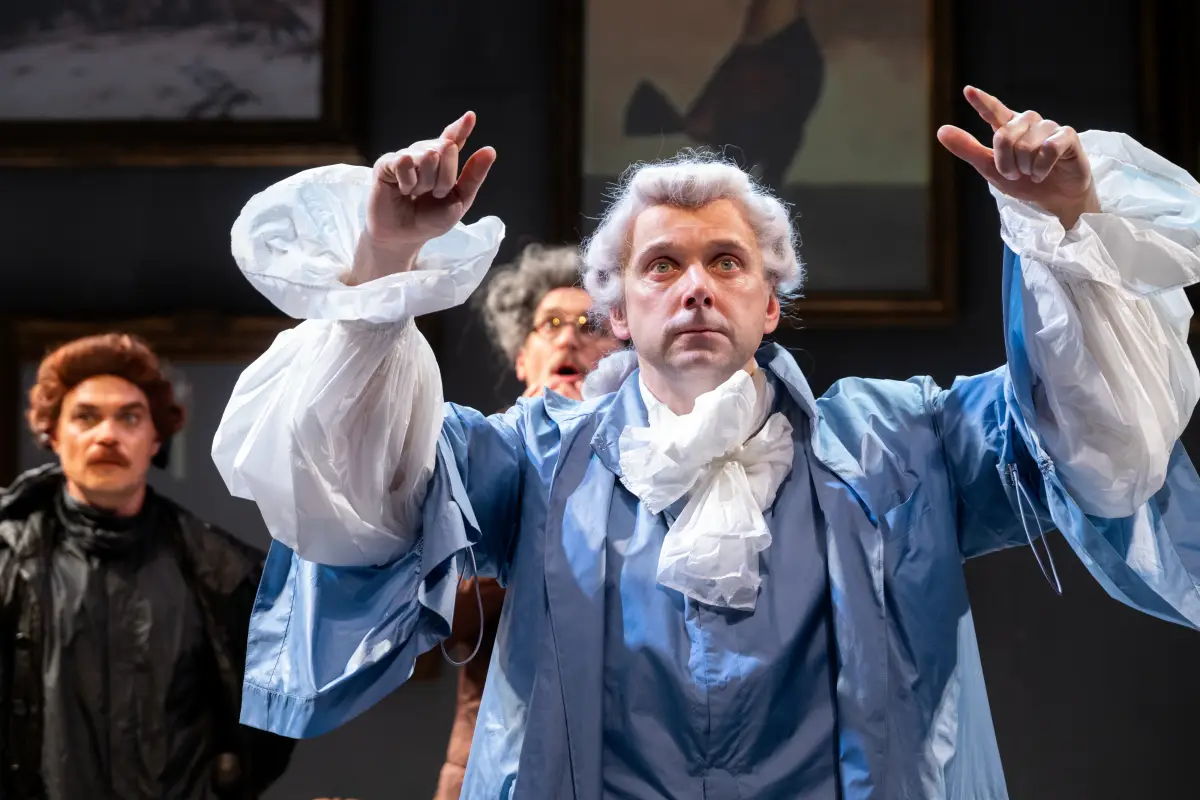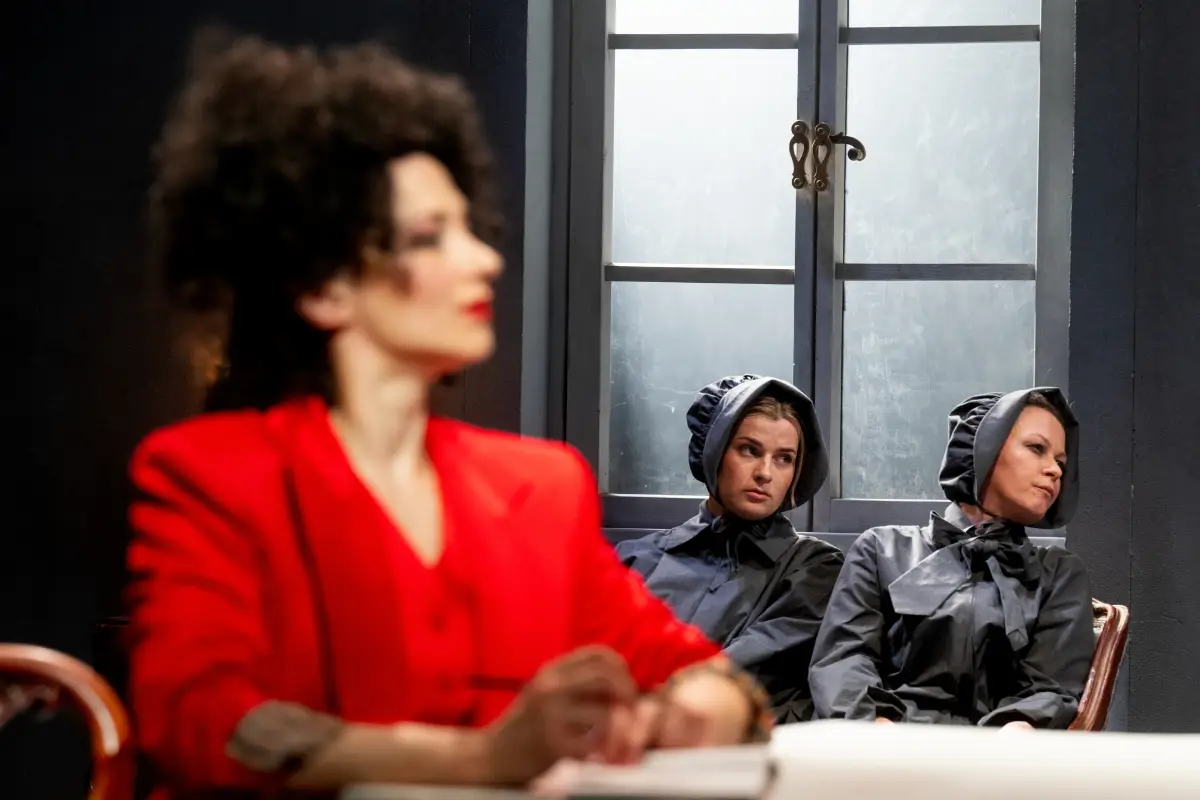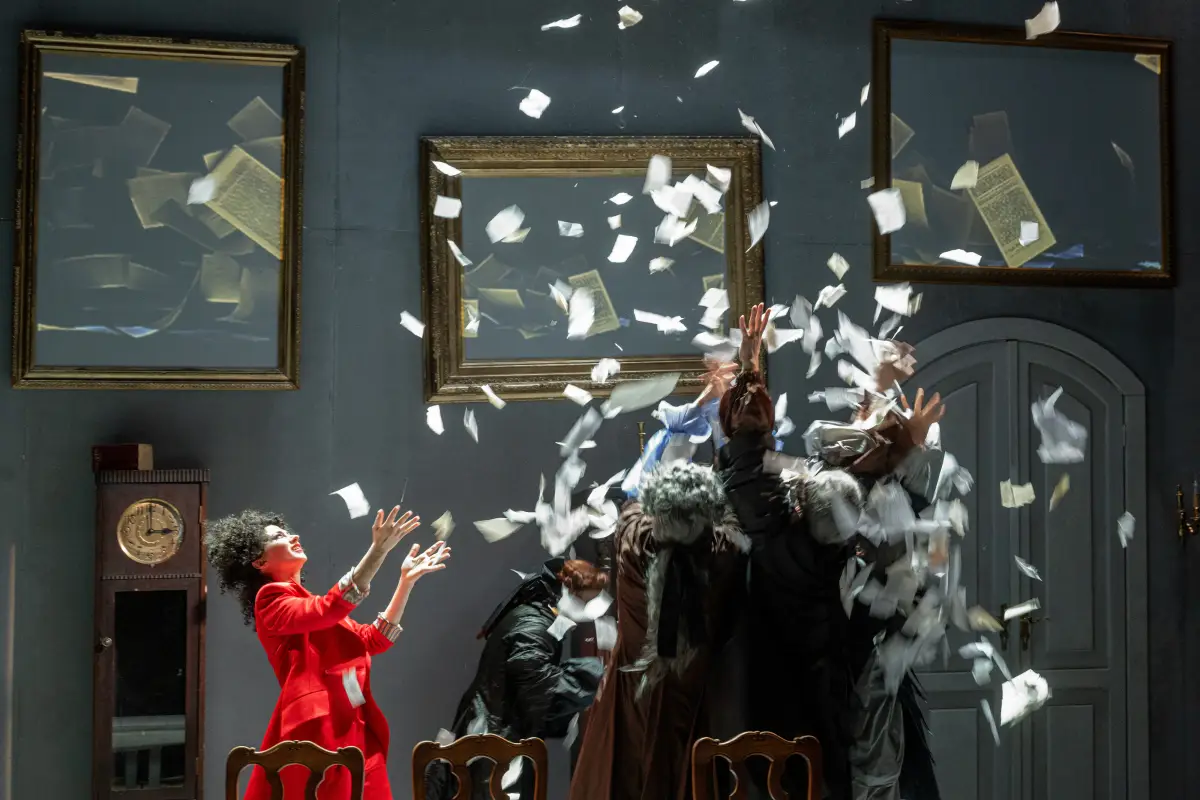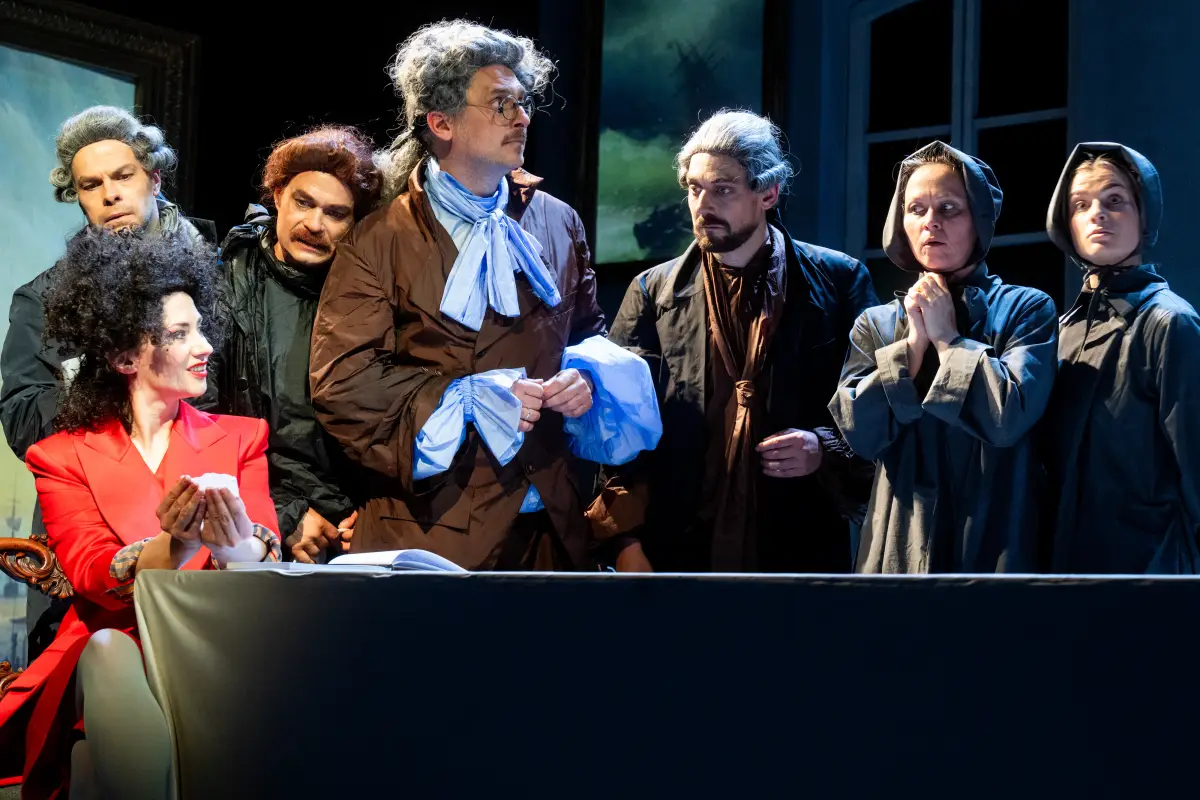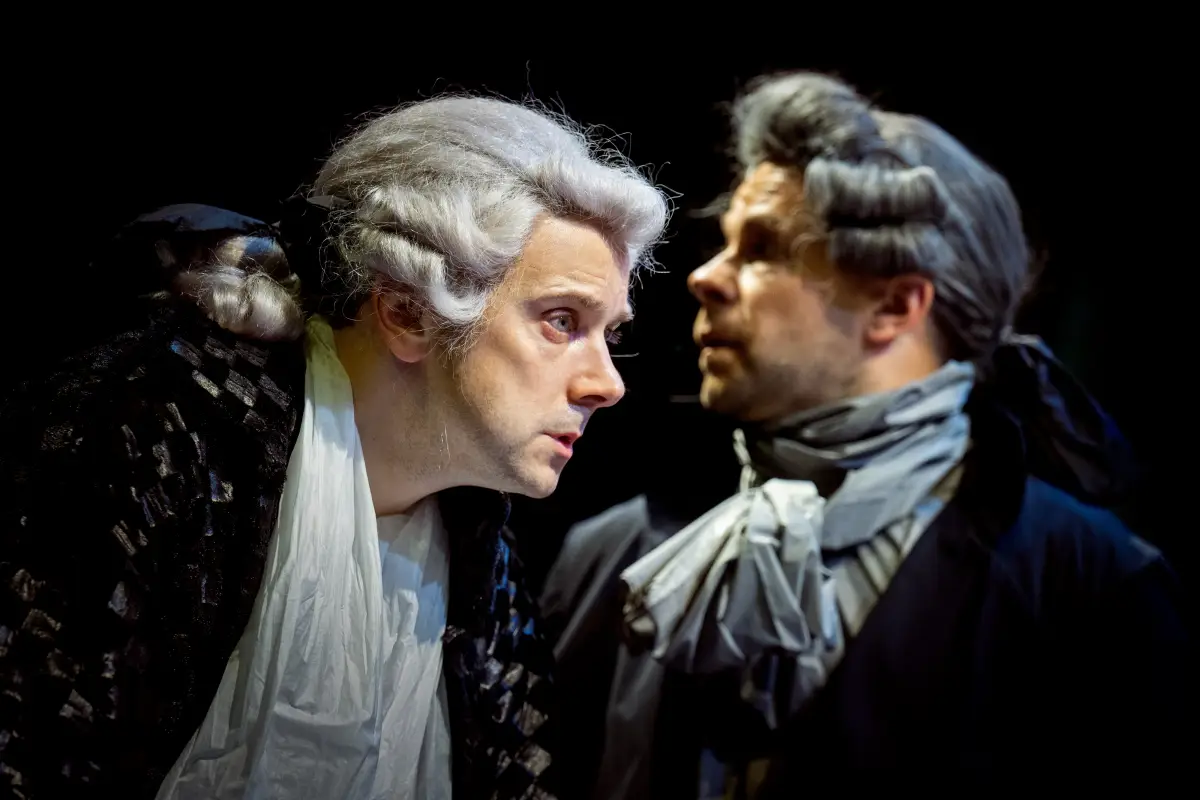
A play in three acts (14+)
Marius Ivaškevičius
Directed by Oskaras Koršunovas
Duration – 4 hrs
Premiere date – 25th April 2025
Upcoming dates
Team
Acting
For the first time in State Small Theatre of Vilnius the most internationally acclaimed Lithuanian director Oskaras Koršunovas is presenting a performance based on the play by the acclaimed playwright Marius Ivaškevičius.
The play is dedicated to the milieu in which lived the famous Prussian philosopher Immanuel Kant, who was as remarkable for his thinking as for his way of life. With his most famous work—Critique of Pure Reason—the philosopher had set himself the almost impossible mission to explore the limits of reason and creating solid grounds for the metaphysics, which was considered necessary and inevitable in his time. Doing so, the philosopher produces one of the most impressive works in the history of human thought. Unlike Kant's complex and intricate thinking, the play presents the Kantian world in an engaging and witty way, and even continues the philosopher's own project of "exploring" the dramatic form by dramatic means.
*
The play is set in 1784 in Königsberg. It is November in Prussia. There is a sense that society is about to undergo significant social change. The Great French Revolution is silently approaching. The philosopher sits down for lunch, following his usual ritual of eating longer lunches in the company of men and, most importantly, not talking about work at all.
At the table, men start talking about this and that, about everyday life at home and times in general. Illness is also a common topic—Kant and his servant Martin suffer from diarrhea. But it soon becomes clear that these are not simple ailments, but something has happened to nature itself. The men's conversation is interrupted by the doorbell and the unexpected appearance of a visitor, who introduces herself as the niece of Kant's old friend Joseph Green. Coming from foggy Scotland, she wants the philosopher to sign her his opus. Reluctantly, the men let the lady in and she, who has little knowledge of the local language, neglects lunch eating logic and gets involved in a philosophical debate. Kant agrees to unlock the secret on man, they examine along with her the human parts that interest the philosophers, trying to draw a distinction between man and beast. After a while, Phobi disappears, creating a mystery that further stimulates the debate on man and his transience.
According to biographical facts Immanuel Kant had meal only once a day, usually in the company of friends and it lingered for several hours. In poor health throughout his life, Kant had a good sense of humour, was an excellent billiard player, but was characterised by modesty and simplicity, a very strict disciplinarian, and slept little. He was unmarried and never left his hometown, although he loved to read travel accounts and retell them to his friends. Kant's punctuality was well-known—the inhabitants of Königsberg could check the accuracy of their watches when they saw him out for a stroll.
Having pinnacled reason and reflected that things as they are "in-themselves" cannot be reached, he turned all experience of the world into a mere result of human reasoning. Thus, the world opens up only to the extent that man himself understands it. Kant wanted man to develop his mind and thus free himself from the prejudices that keep him from being truly free.
Kūrinys nukelia į 1784 m. Karaliaučių. Prūsijoje lapkričio mėnuo. Tvyro nuojauta, kad visuomenė išgyvens reikšmingus socialinius pokyčius. Į nugarą jau alsuoja Didžioji Prancūzijos revoliucija. Laikydamasis įprasto ritualo valgyti ilgesnius pietus vyriškoje kompanijoje ir – svarbiausia – šiukštu nekalbėti apie darbą, filosofas sėdasi pietauti.
Prie stalo vyrai ima postringauti apie šį ir apie tą, kalbama apie kasdieną namuose ir šiandieną apskritai. Neaplenkiamos ir ligos – Kantą ir jo tarną Martiną kankina vidurių spazmai. Tačiau greitai ima aiškėti, kad tai nėra paprasti negalavimai, kažkas nutiko su pačia gamta. Vyrų pokalbį sutrikdo skambutis į duris ir netikėtai pasirodo viešnia, prisistatanti seno Kanto bičiulio Džozefo Gryno dukterėčia. Atvykusi iš rūke paskendusios Škotijos, ši nori kad filosofas jai pasirašytų „Grynojo proto kritiką“. Nenoromis vyrai įsileidžia damą, o ši, net ir nelabai mokėdama vietinę kalbą, nepaiso pietų logikos ir įsivelia į filosofines diskusijas. Kantas sutinka Fobi praskleisti uždangą į žmogų, narsto jį filosofų tiriamomis dalimis, pabando nubrėžti skirtumą tarp žmogaus ir gyvulio. Po kurio laiko Fobi dingsta, sukeldama paslaptį, dar labiau paskatinusią pratęsti diskusijas apie žmogų ir jo laikinumą.
Biografiniai faktai liudija, kad Immanuelis Kantas pietaudavo tik kartą per dieną, kelias valandas trunkantis pasisėdėjimas dažniausiai vykdavo draugų kompanijoje. Visą gyvenimą buvęs silpnos sveikatos, Kantas turėjo gerą humoro jausmą, puikiai žaidė biliardą, bet pasižymėjo kuklumu ir paprastumu, laikėsi labai griežtos disciplinos, mažai miegojo. Nebuvo vedęs, niekad neišvyko iš gimtojo miesto, nors mėgo skaityti kelionių aprašymus ir juos perpasakoti savo draugams. Pasižymėjo tokiu punktualumu, kad, sakoma, pagal jo rutiną Karaliaučiaus gyventojai galėjo pasitikslinti savo laikrodžius.
Išaukštinęs protą ir apmąstęs, kad daiktų, tokie, kokie jie yra „patys savaime“, žmogus pažinti vis vien negali, jis visą patirtį apie pasaulį pavertė tik žmogaus mąstymo rezultatu. Taigi, pasaulis atsiveria tik tiek, kiek jį supranta pats žmogus. I. Kantas siekė, kad žmogus lavintų protą ir taip išsivaduotų iš jį kaustančių prietarų, trukdančių jam būti išties laisvam.
Lietuviškų šaknų turintis Immanuelis Kantas šiandien laikomas vienu iš įtakingiausių filosofų istorijoje, o „Grynojo proto kritika“ savo idėjomis yra neištrinamas veikalas filosofijos mokslo raidoje. Atsispirdami nuo I. Kanto pamatinių idėjų, be daugumos kitų žymių mąstytojų, iškilo ir tokie didieji filosofai kaip Arthuras Schopenhaueris ir Martinas Heideggeris, kurių mąstymo įtaka aiškiai justi šiandienos pasaulyje.
Recenzijos:
Ramunė Balevičiūtė. Komedijos gimimas iš žaidimo dvasios / 2025-04-28
Ieva Gražytė. Tik laiko klausimas / 2025-06-06
Ingrida Ragelskienė. Koršunovo imperatyvas: teatras be rizikos / 2025-06-20
Daiva Šabasevičienė. Kantas Vilniaus mažajame teatre / Kultūros barai, Nr. 6 (2025)
